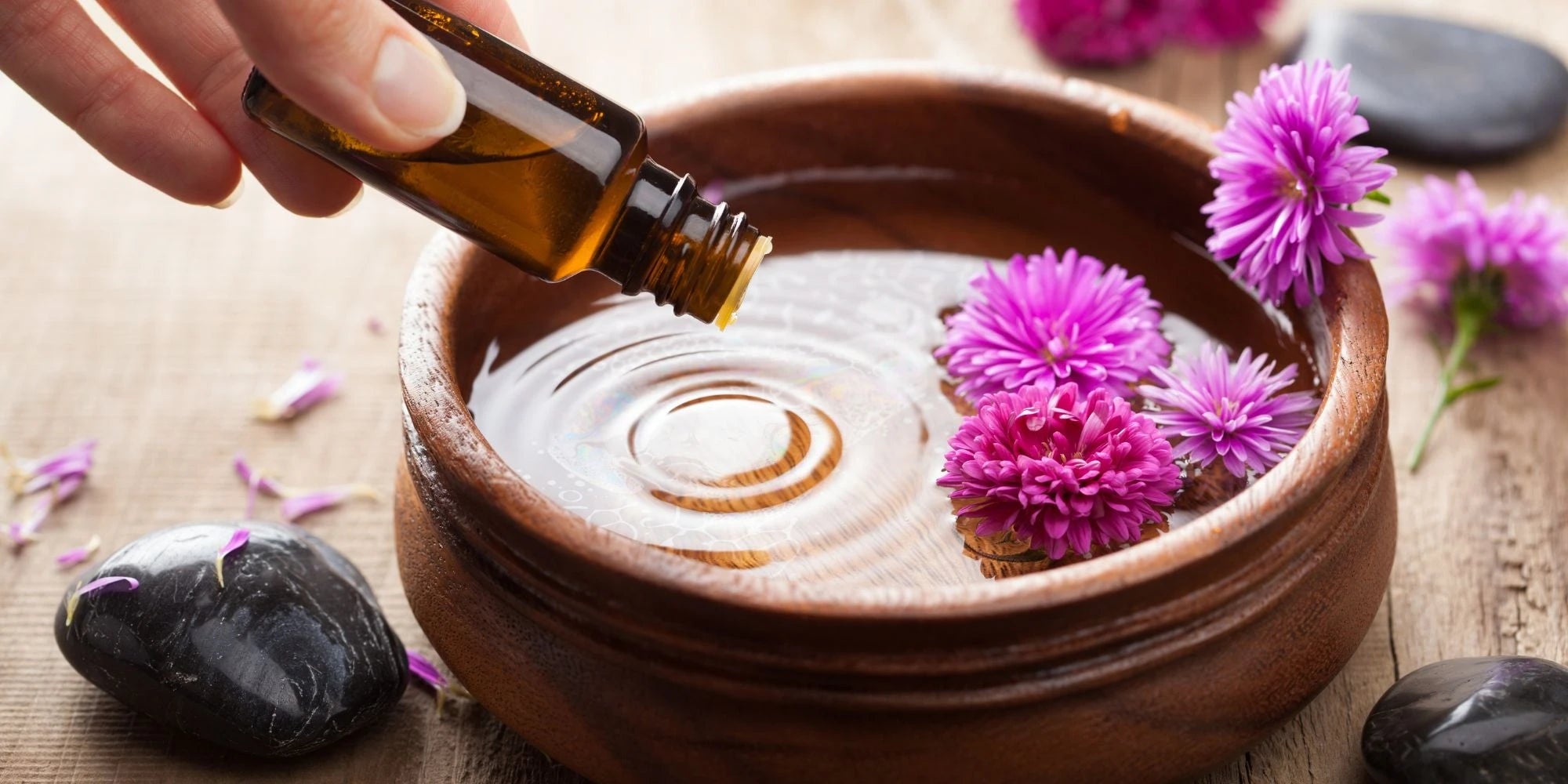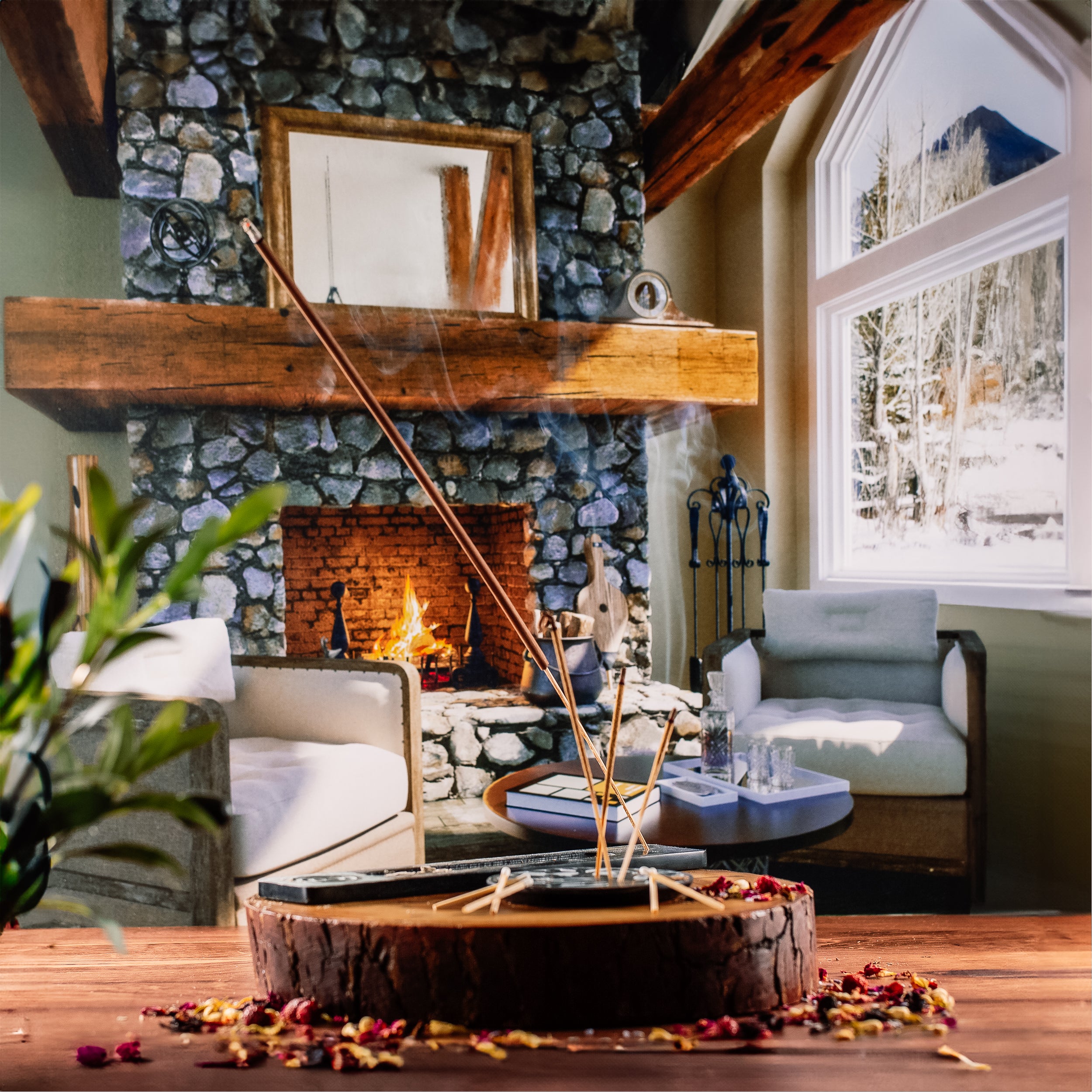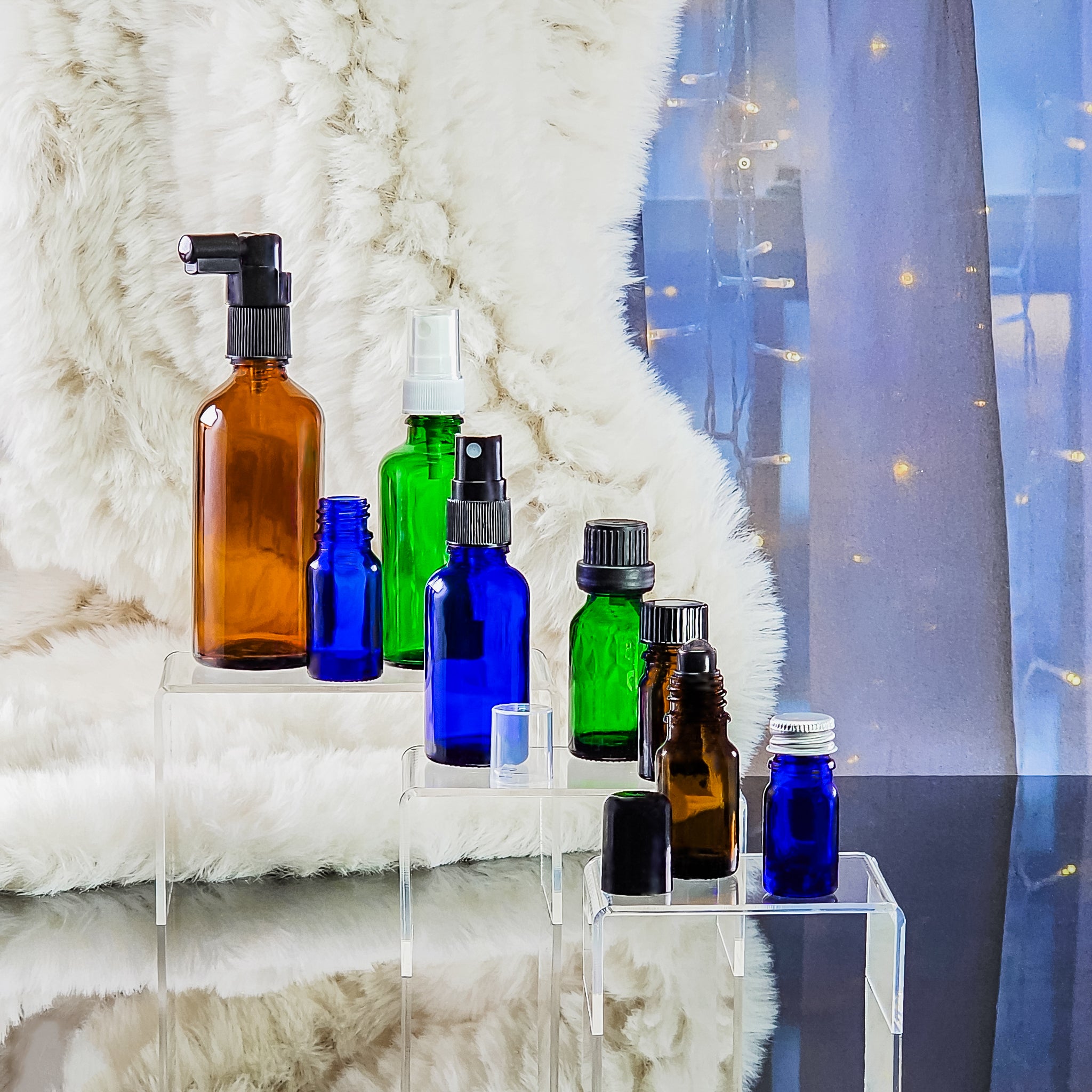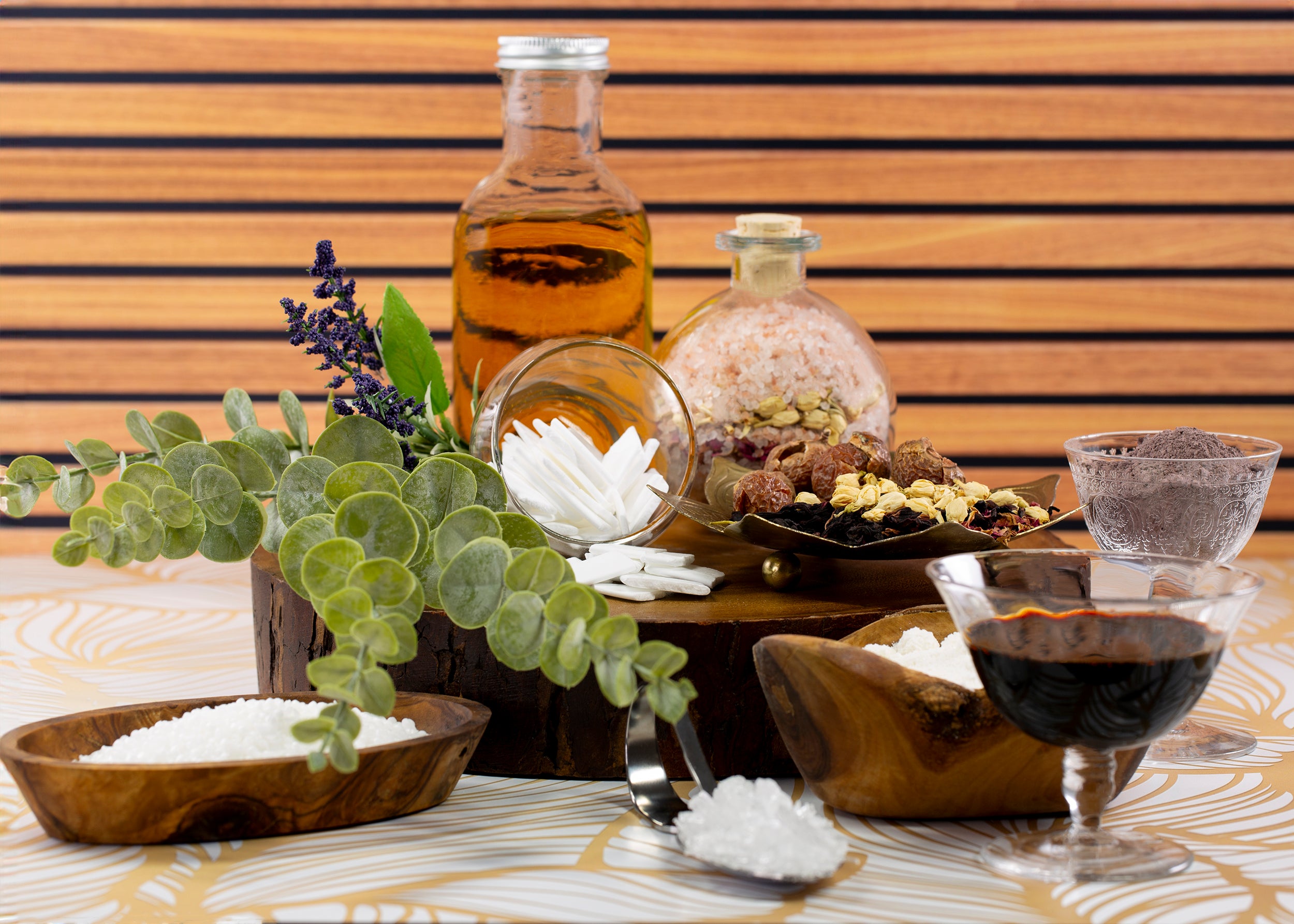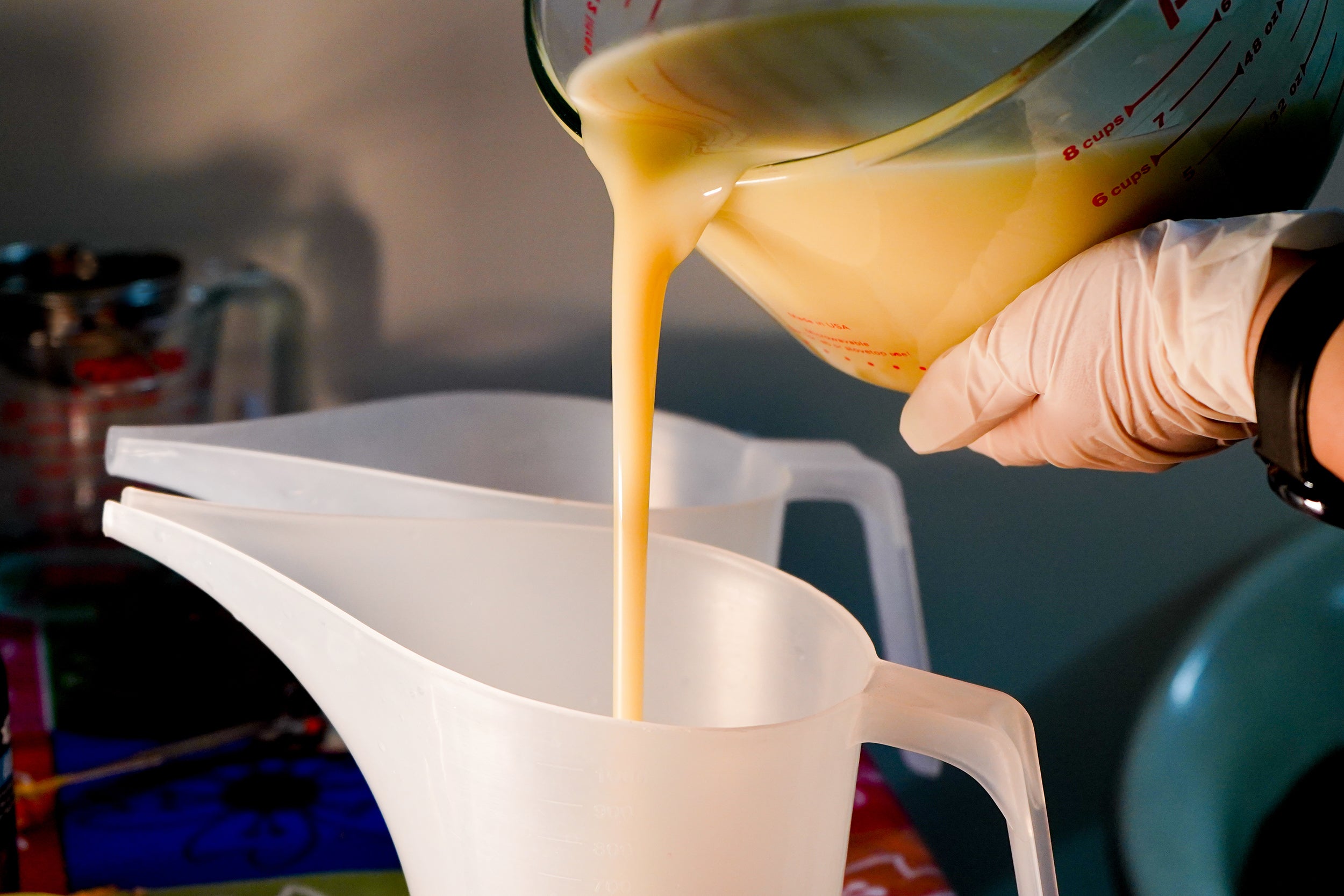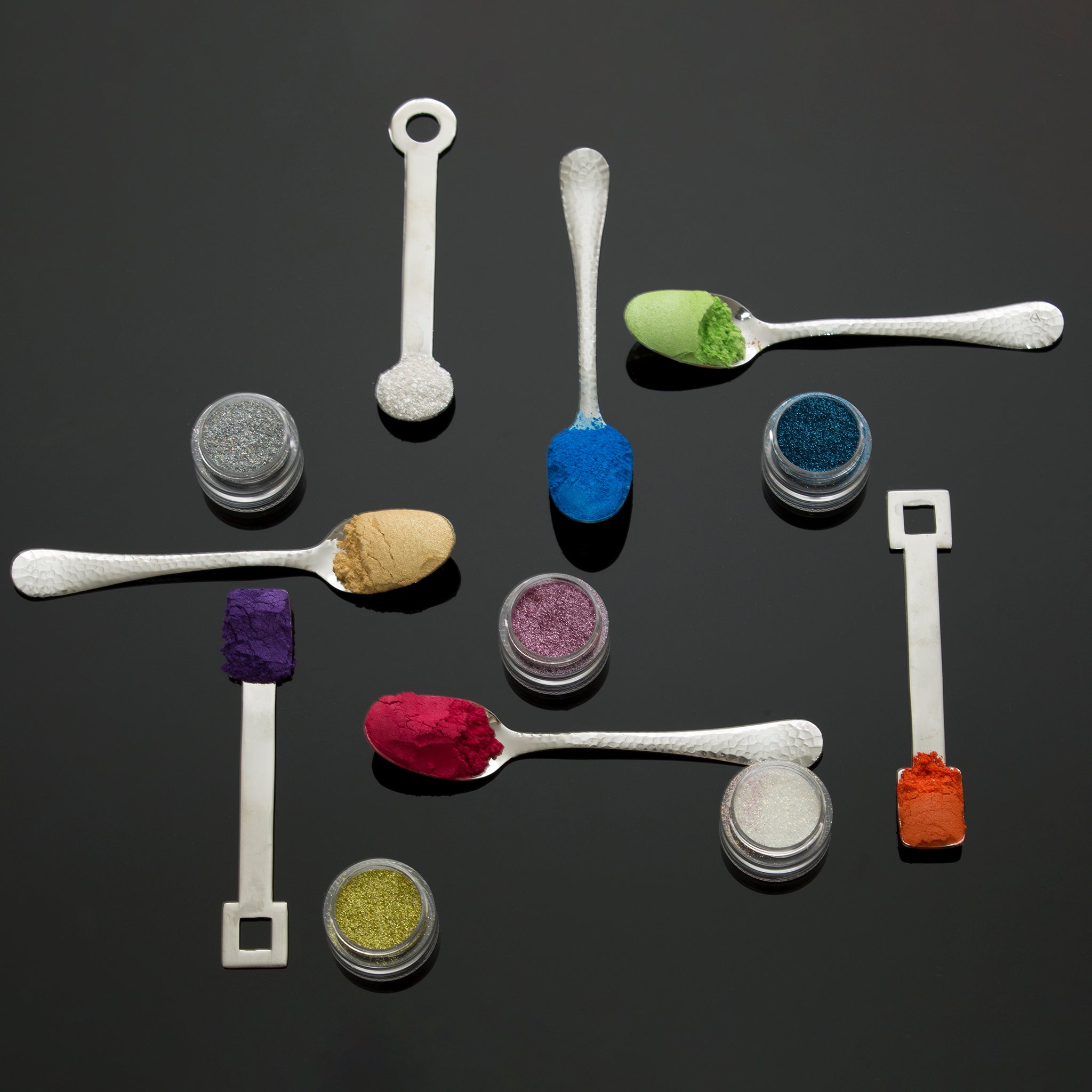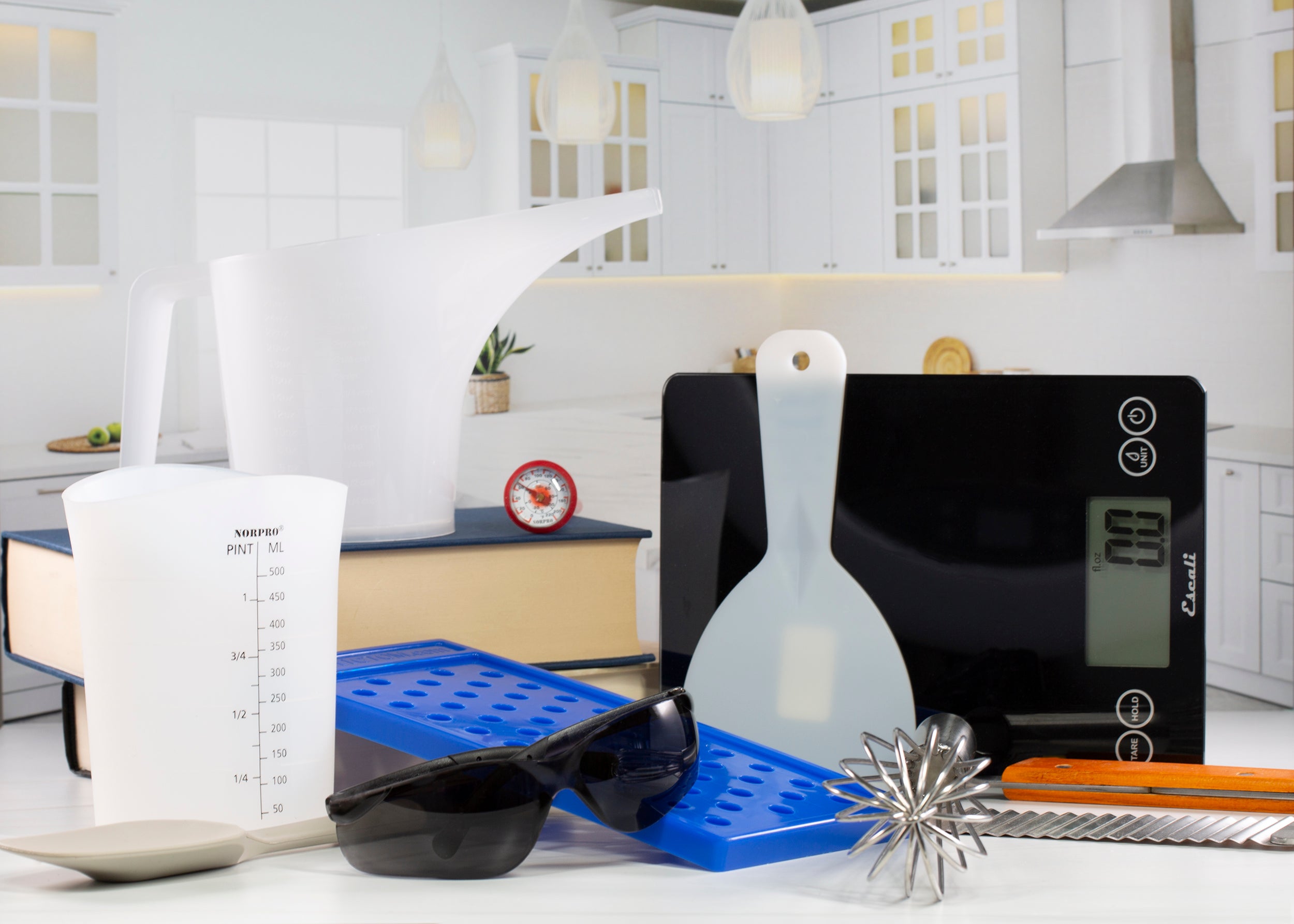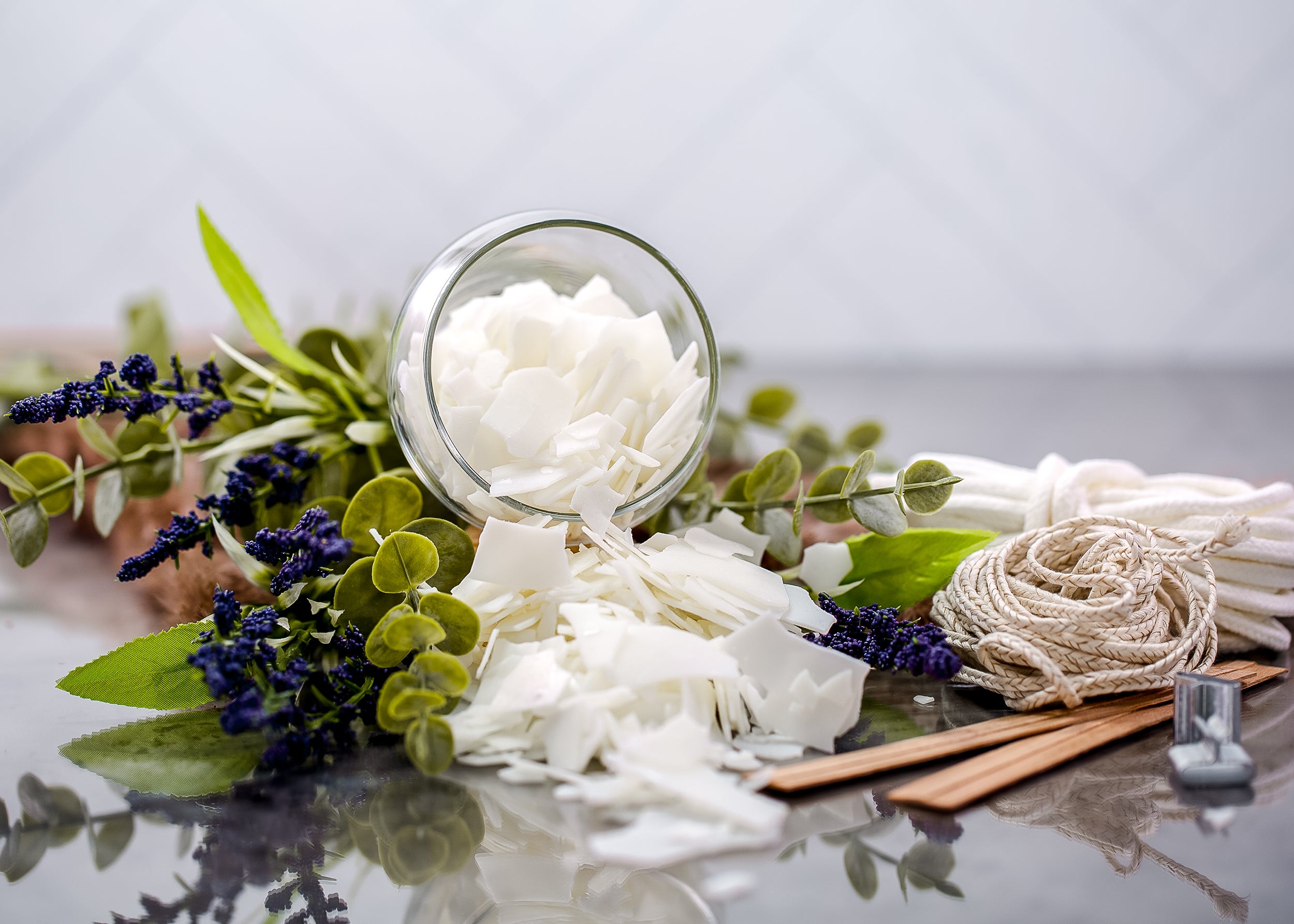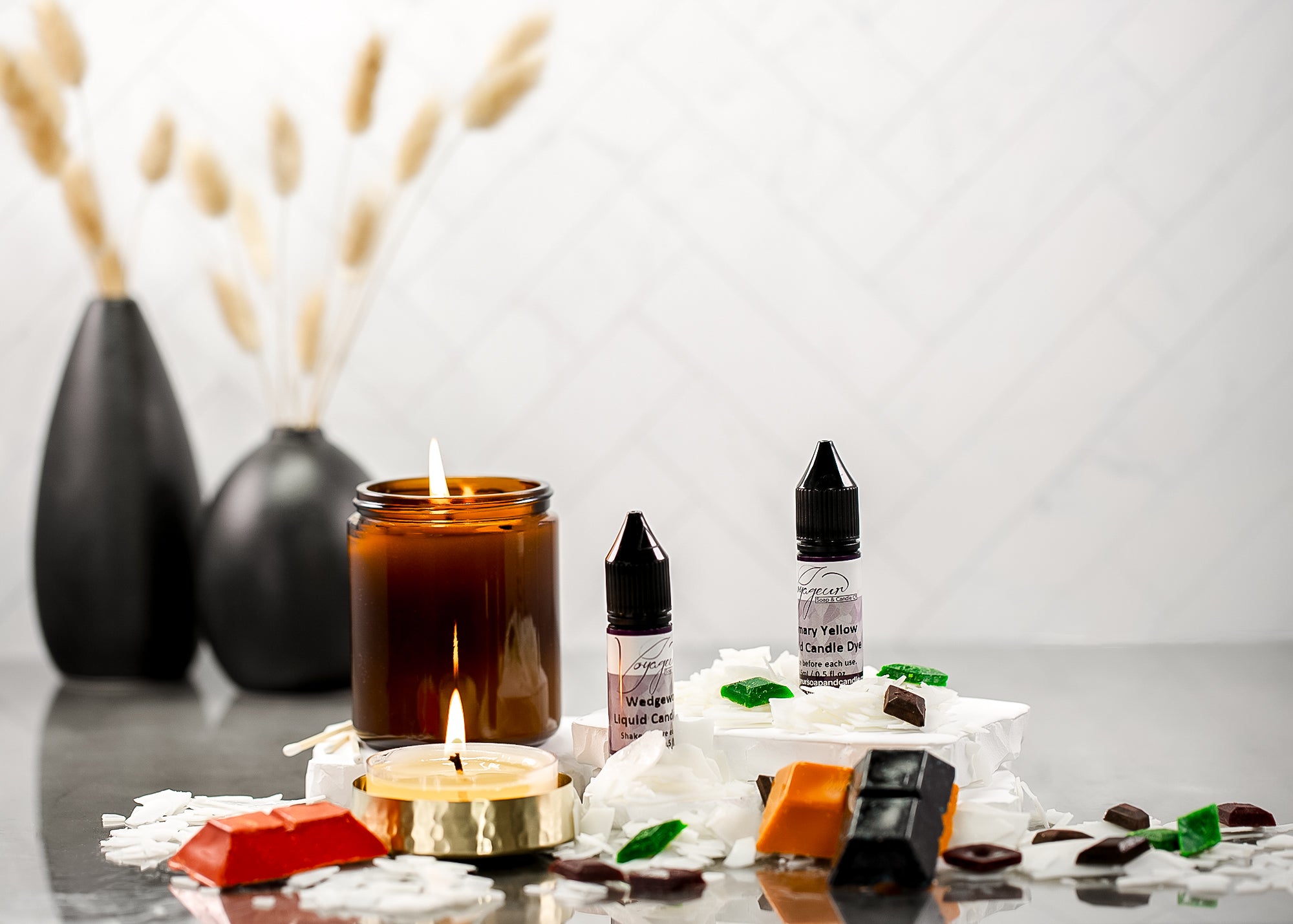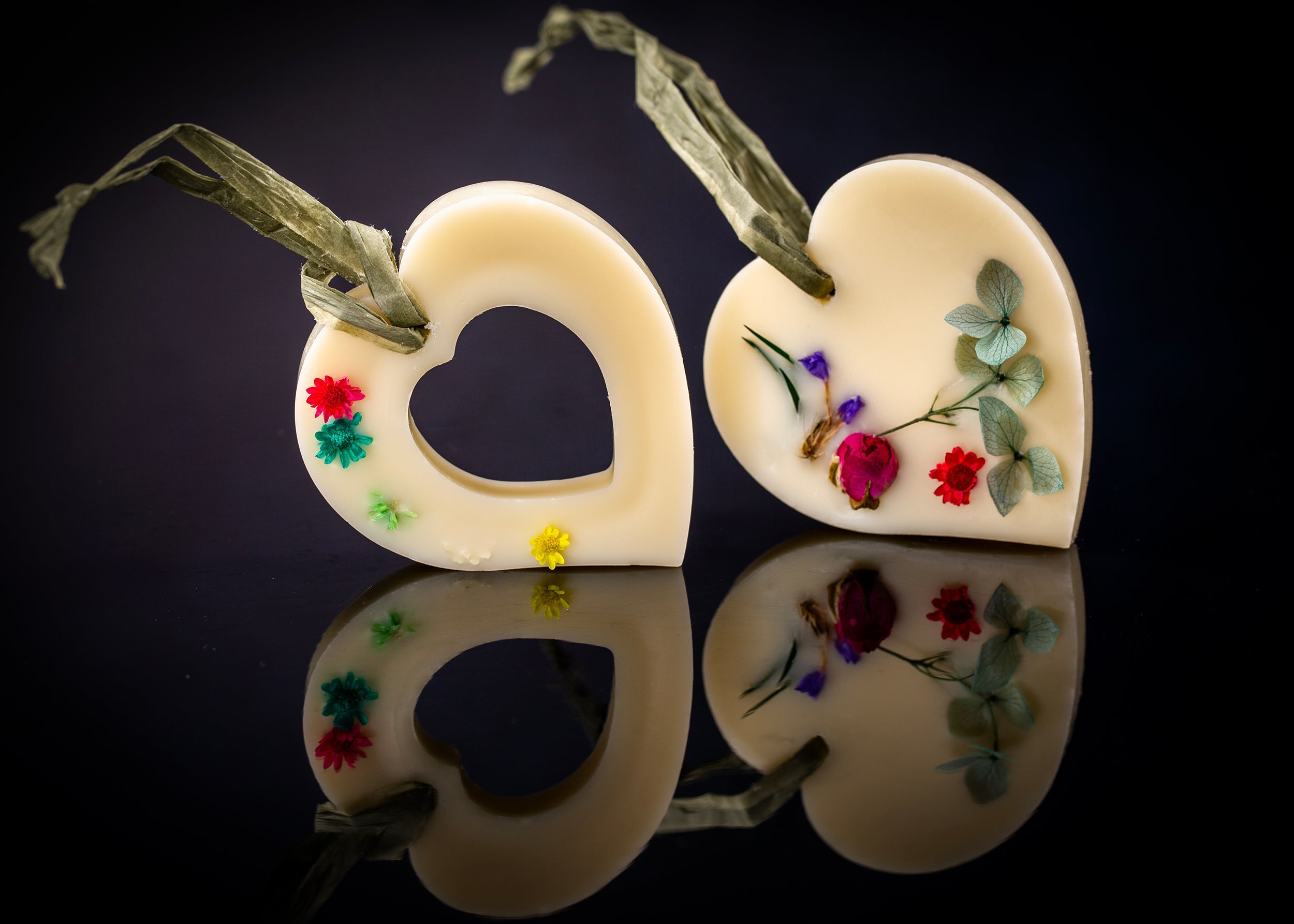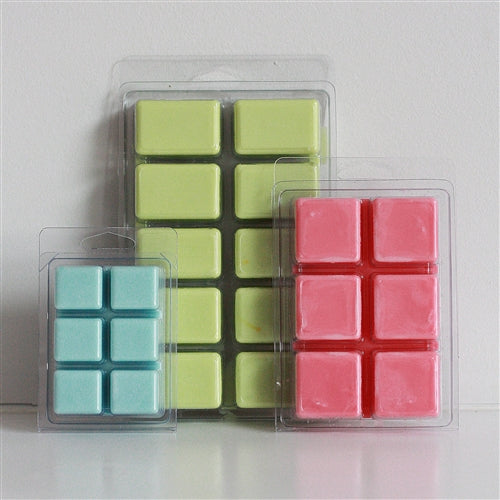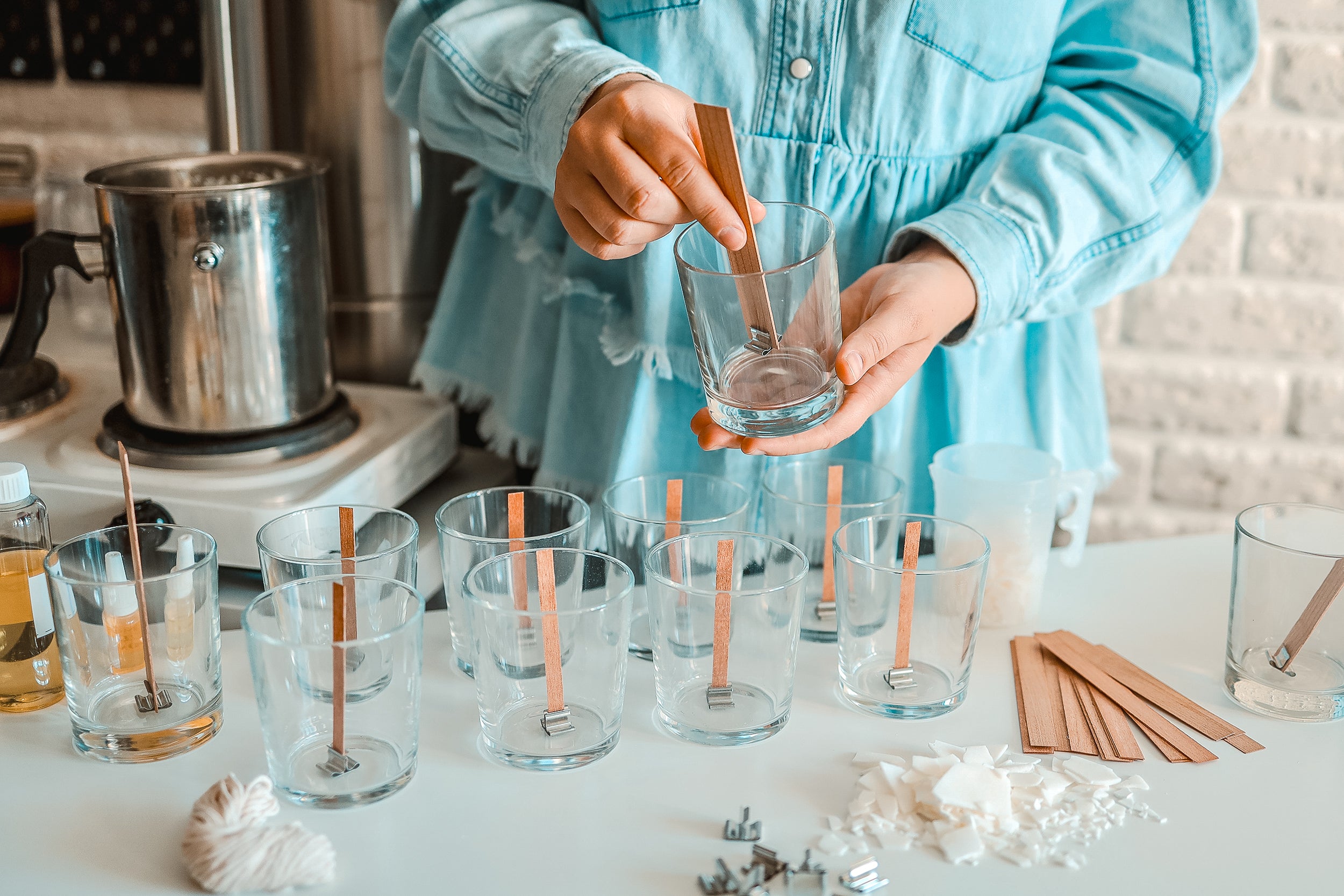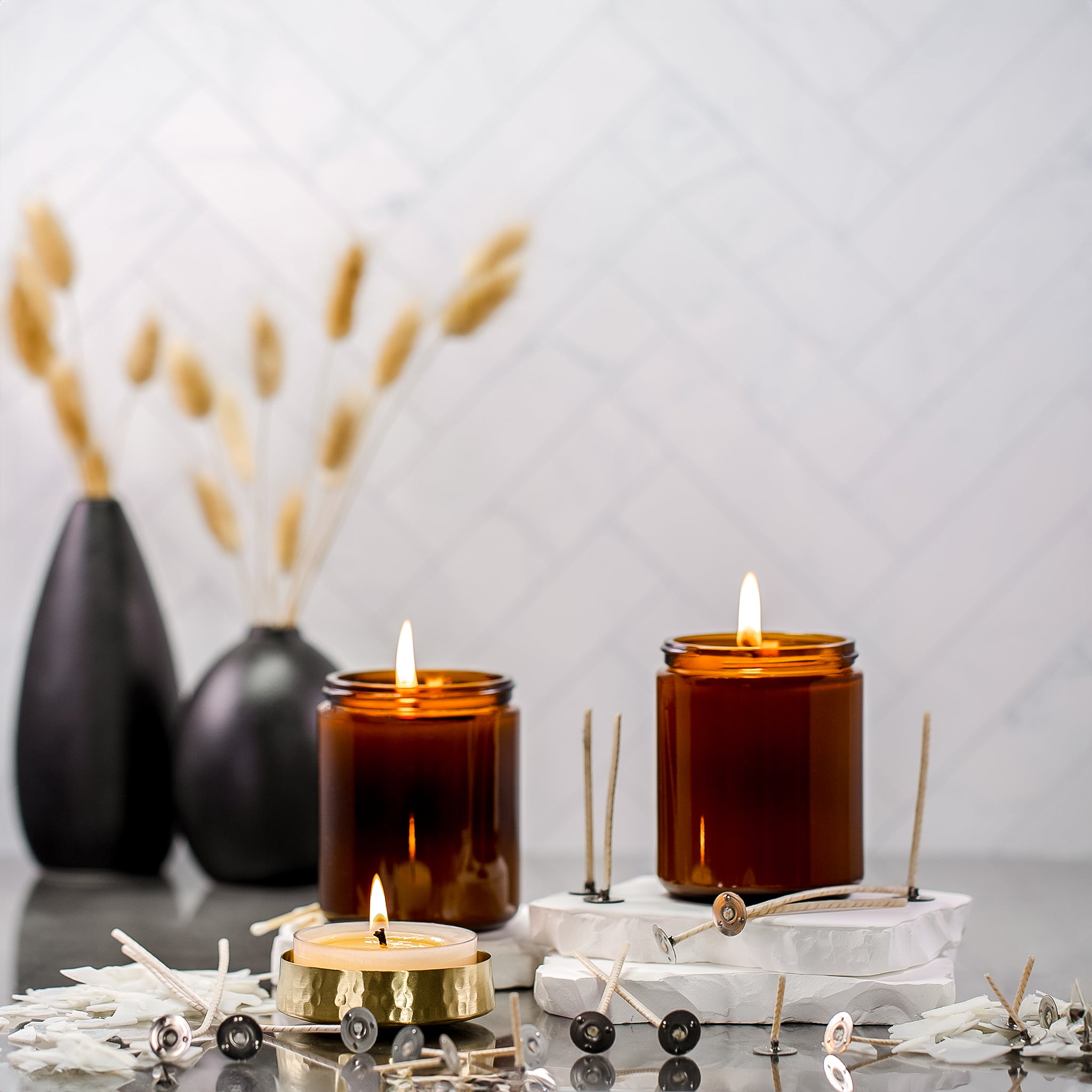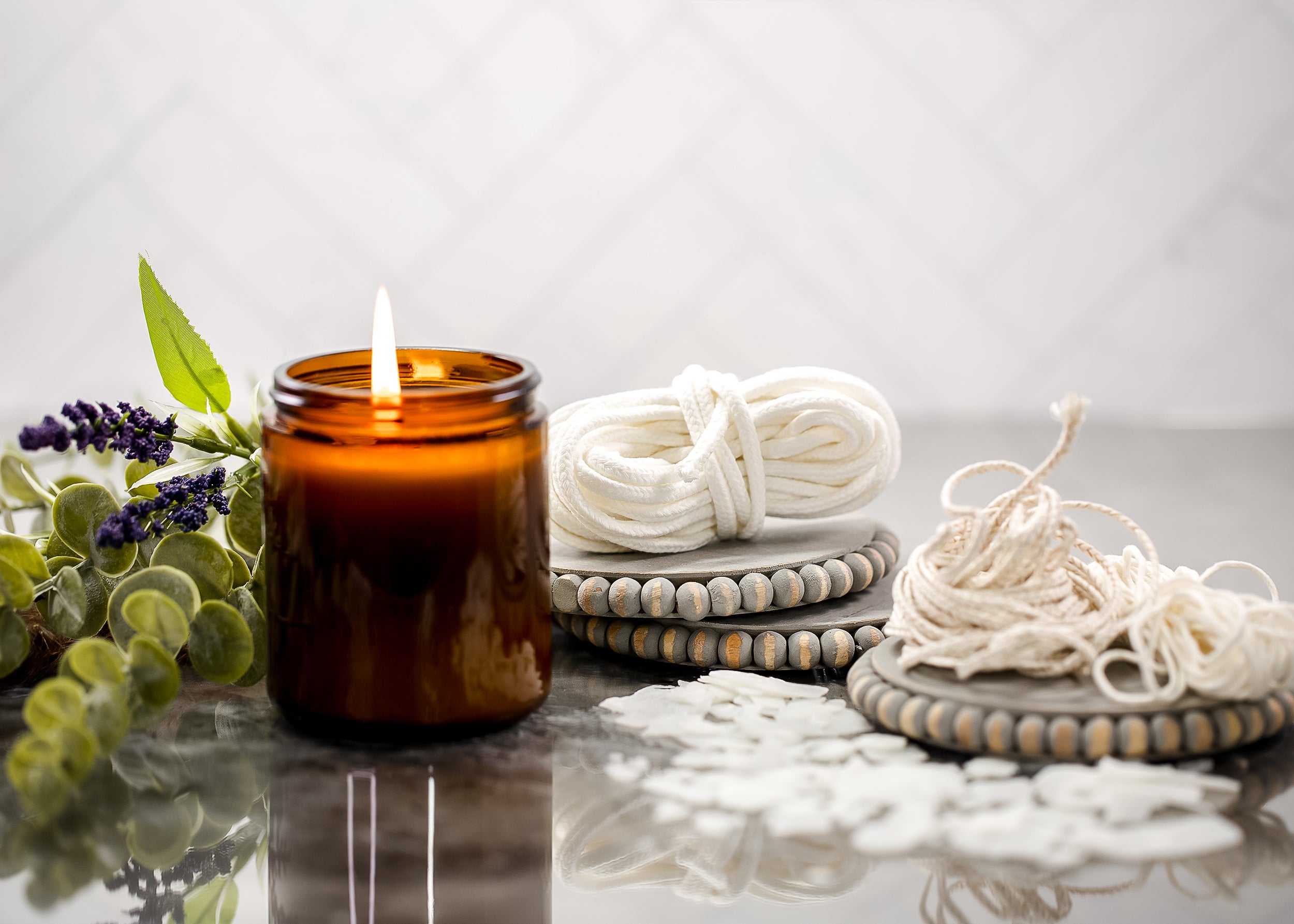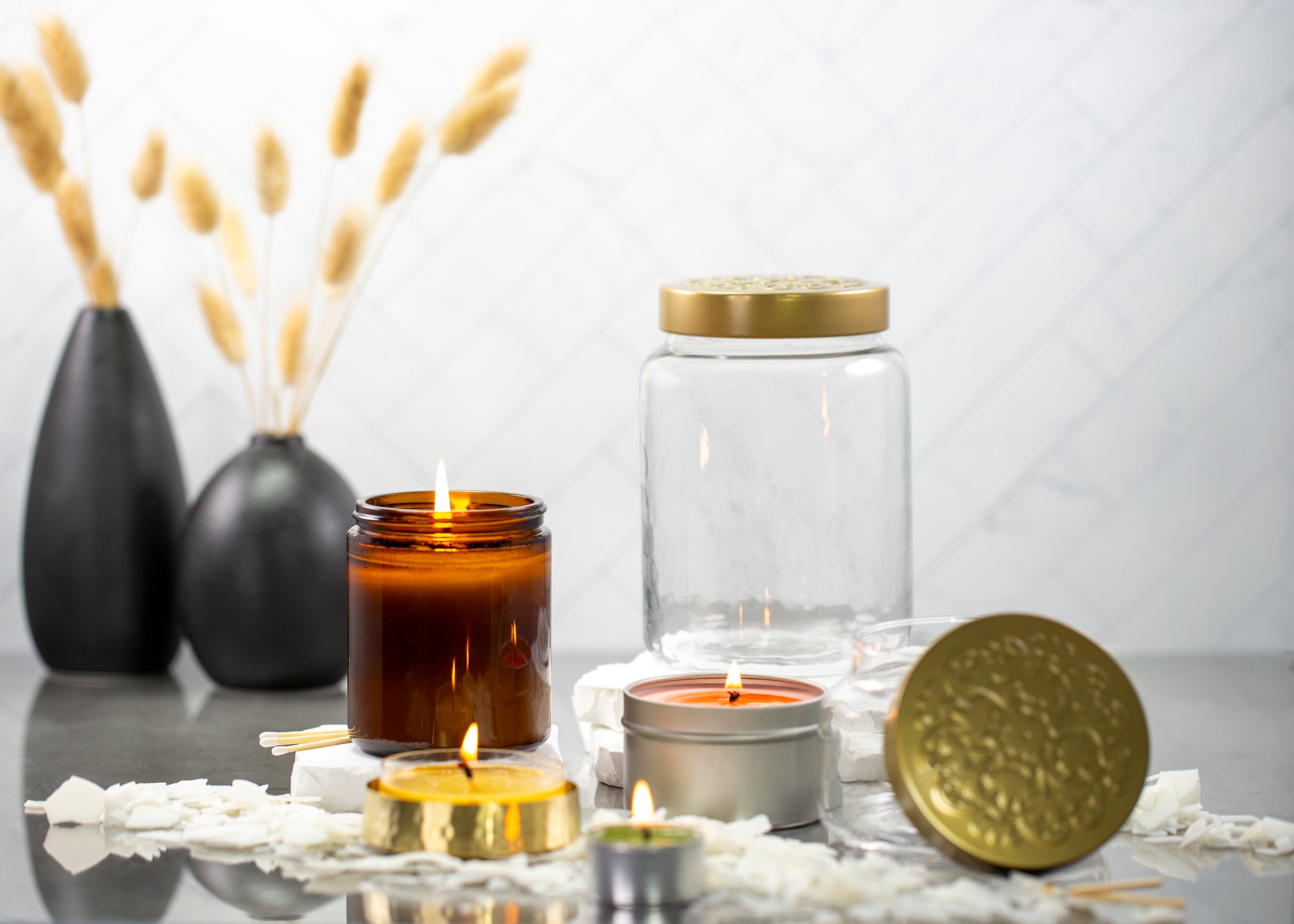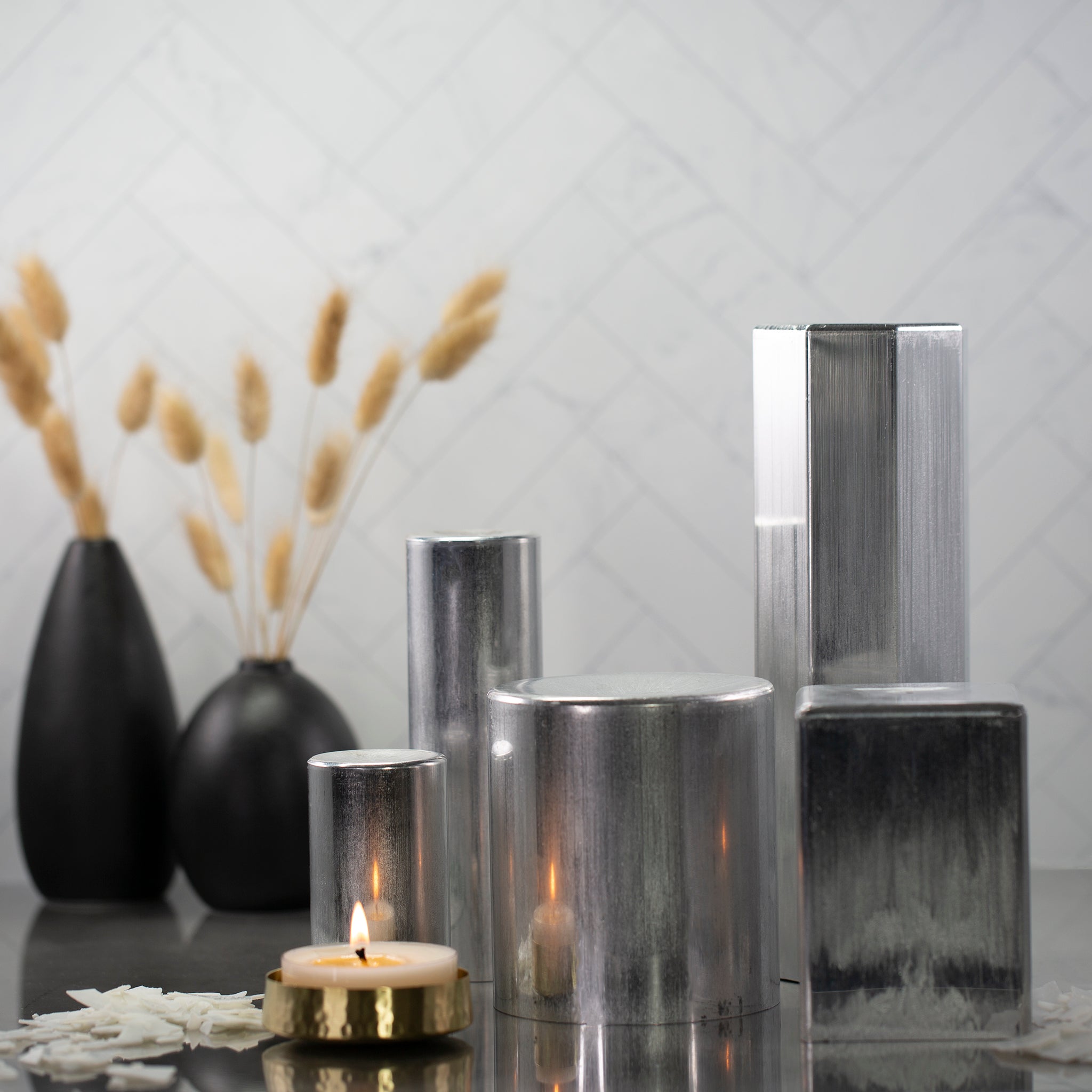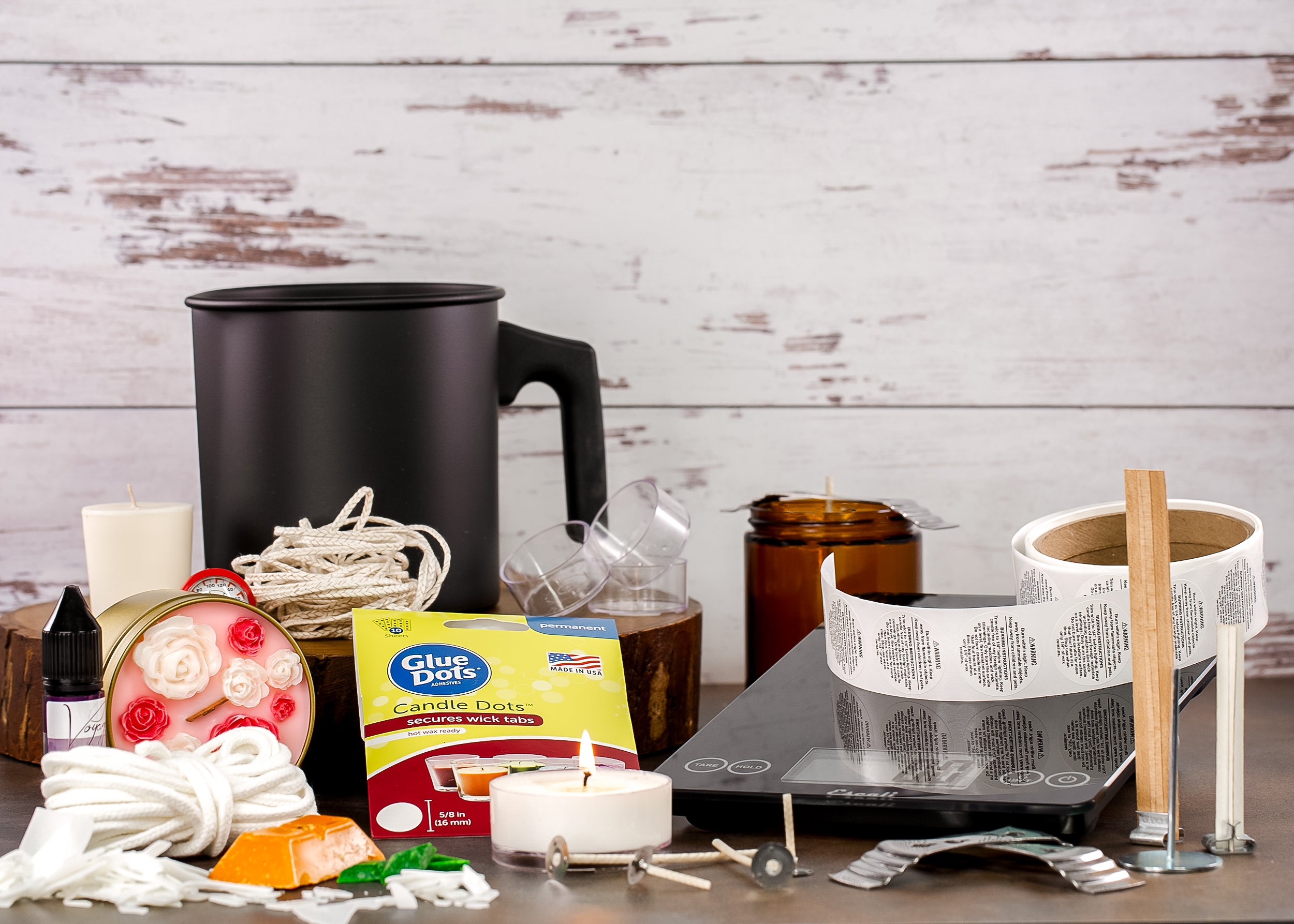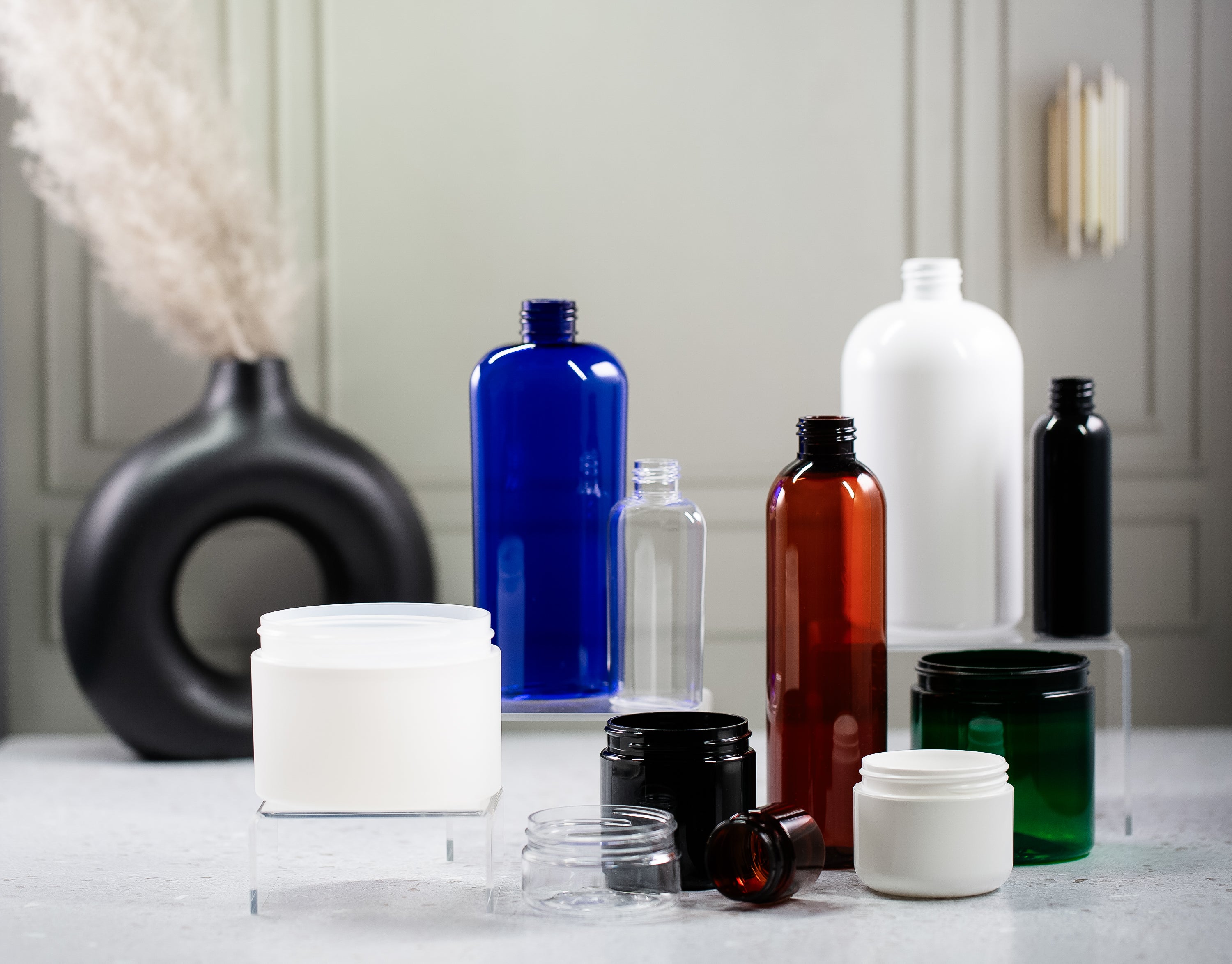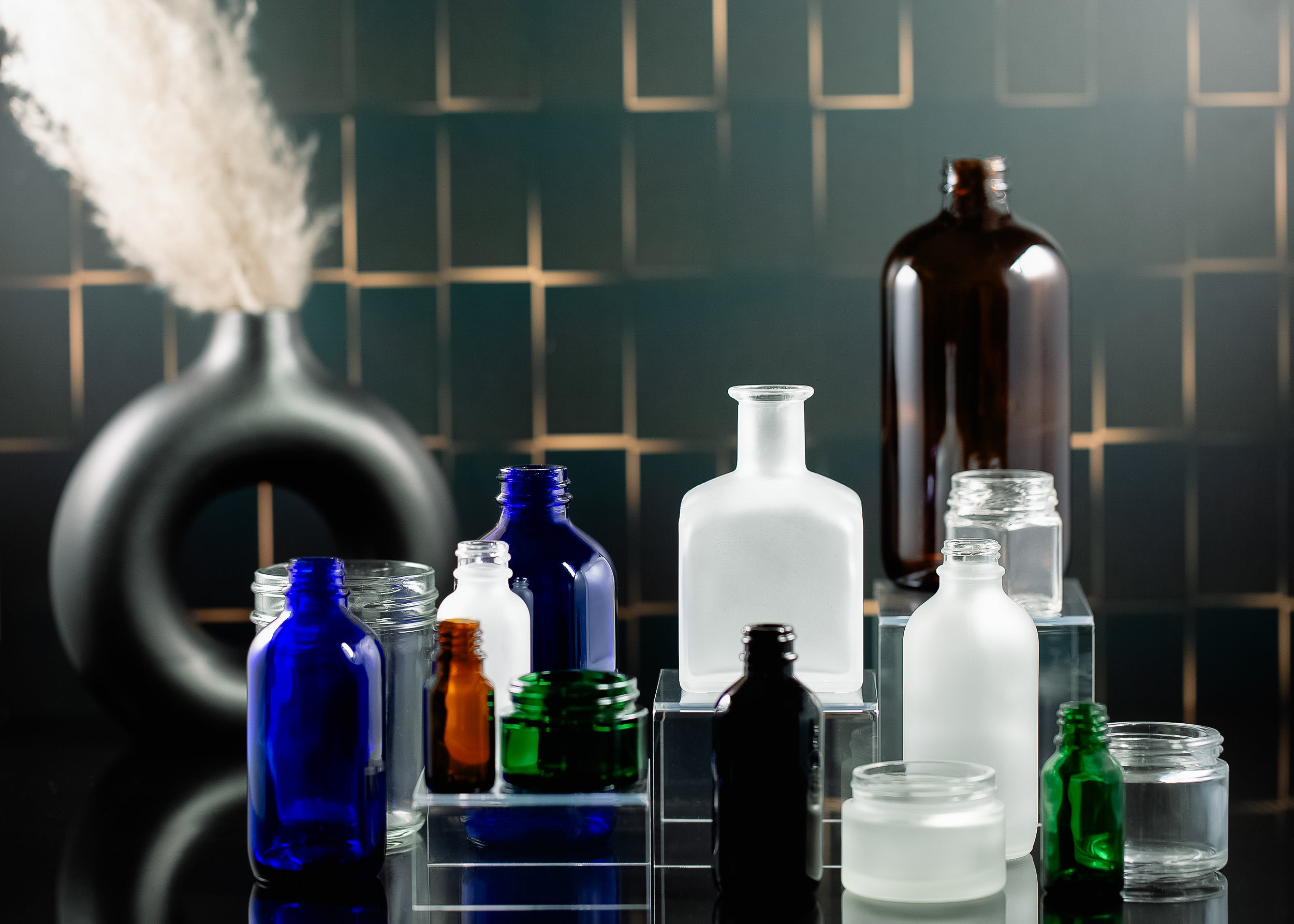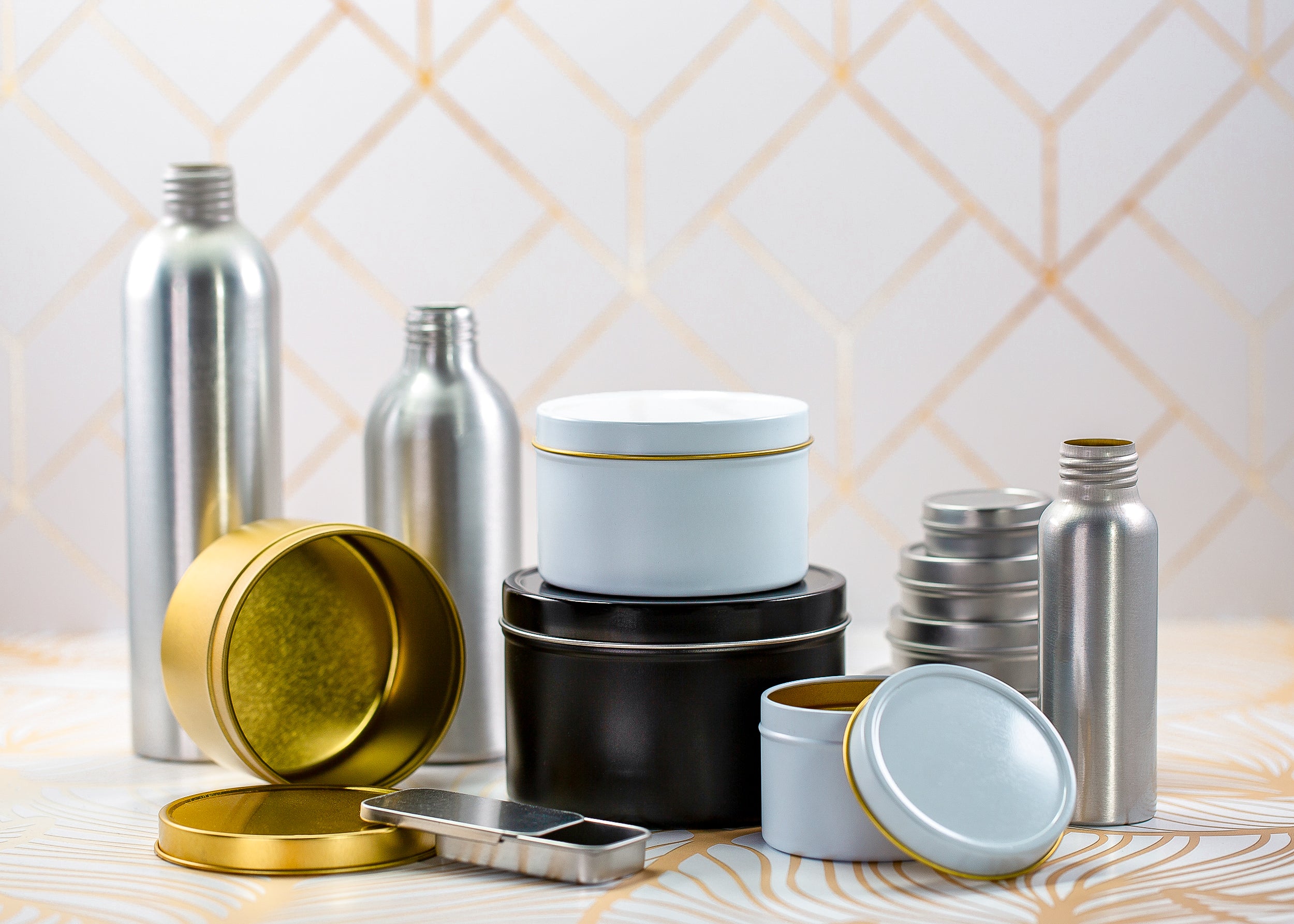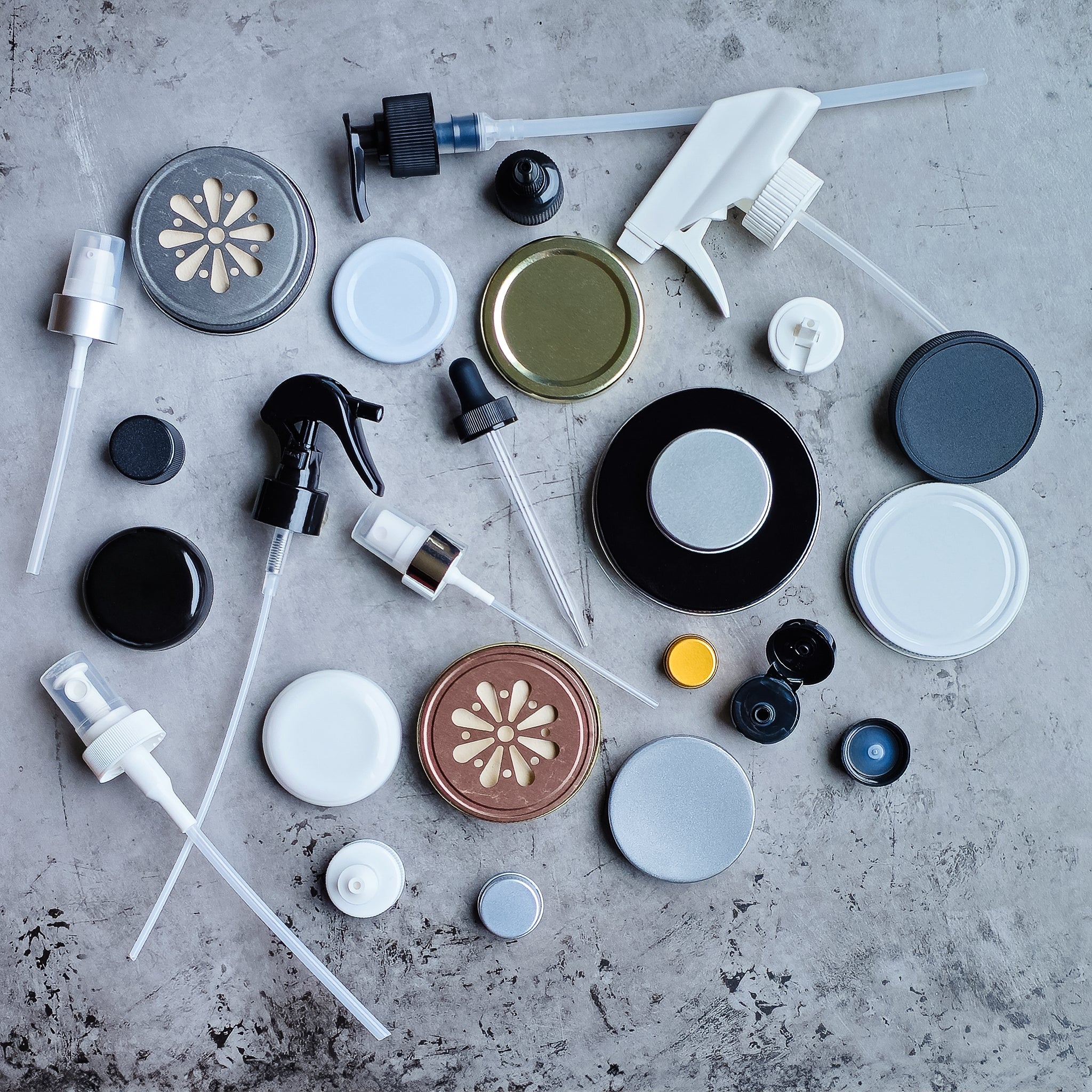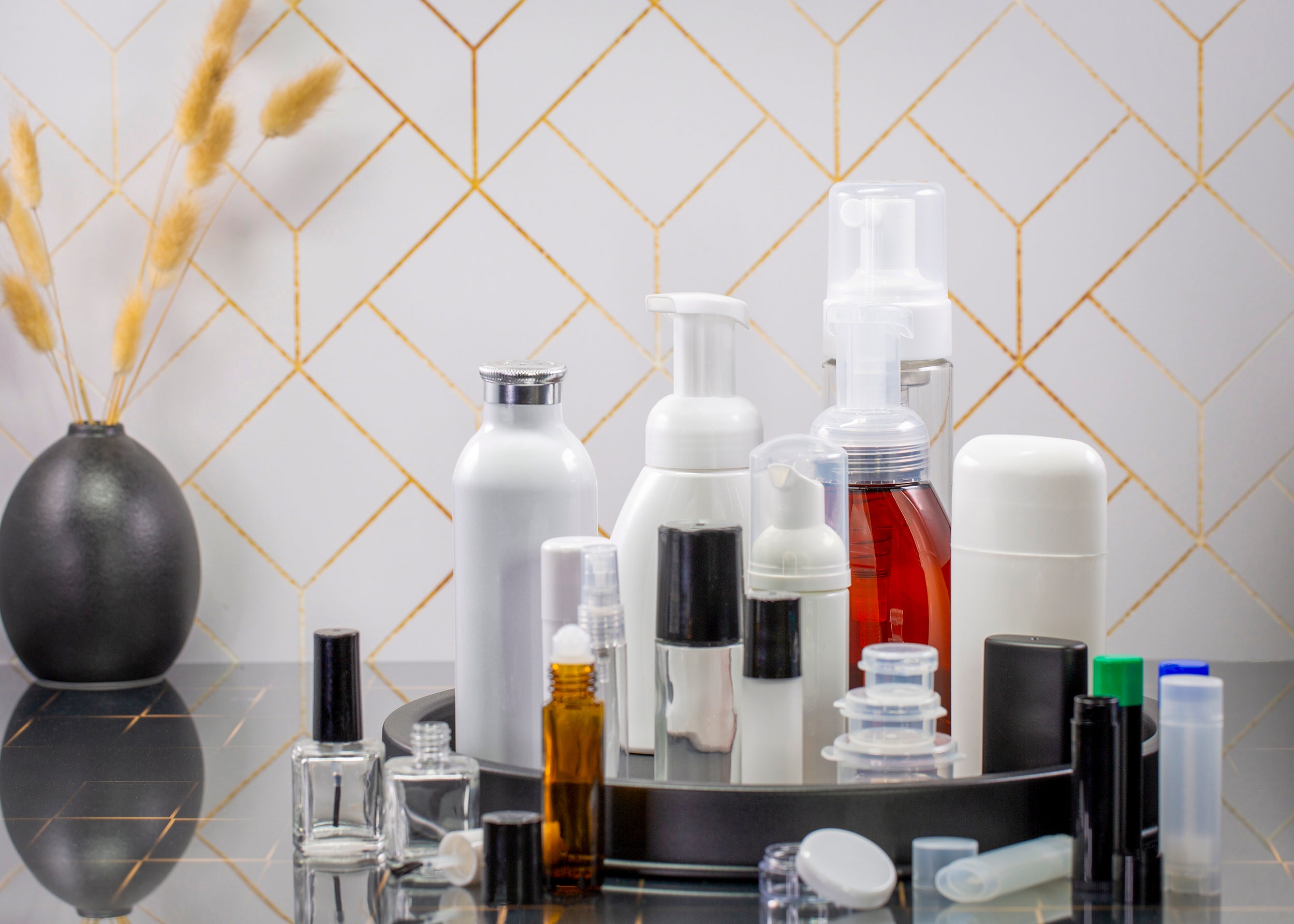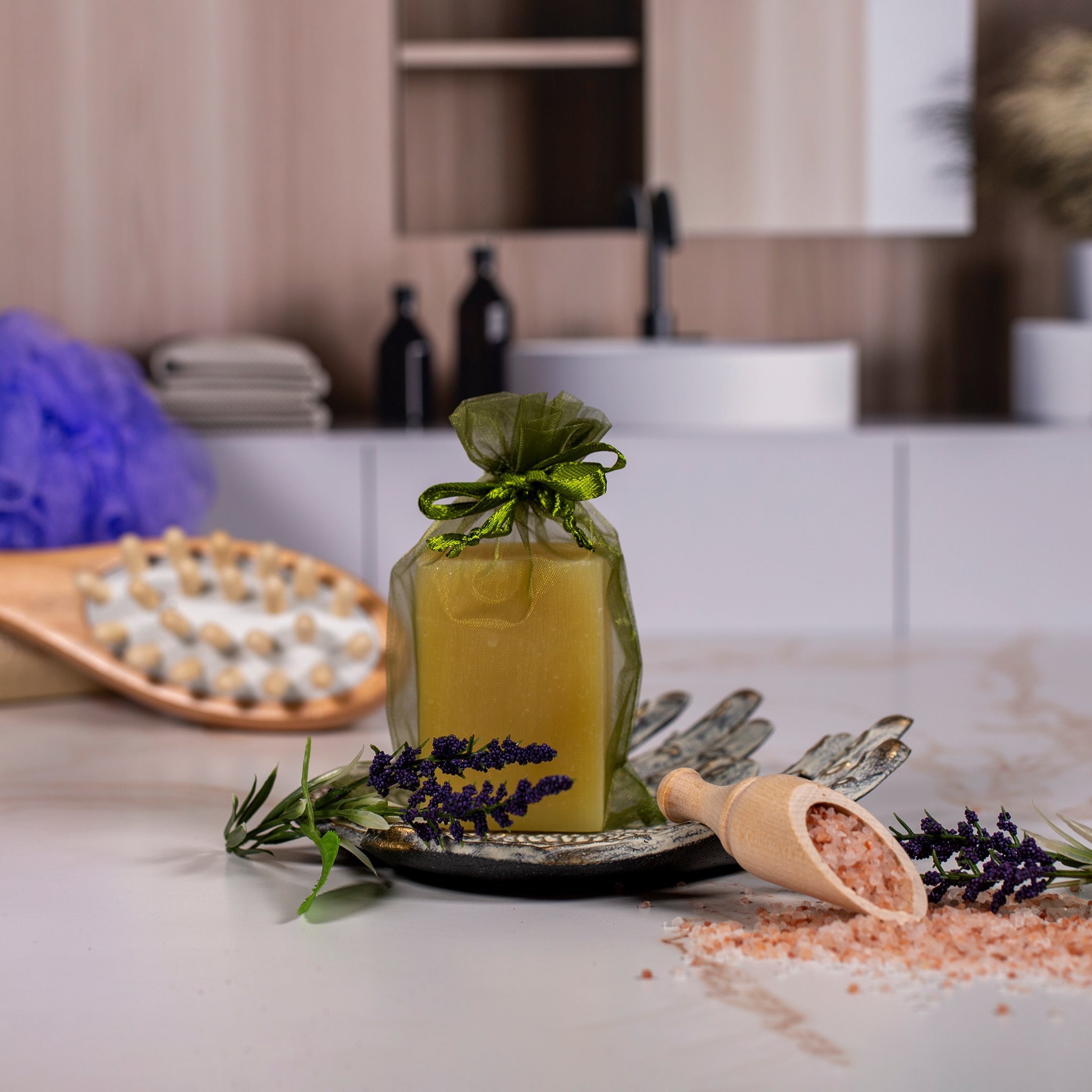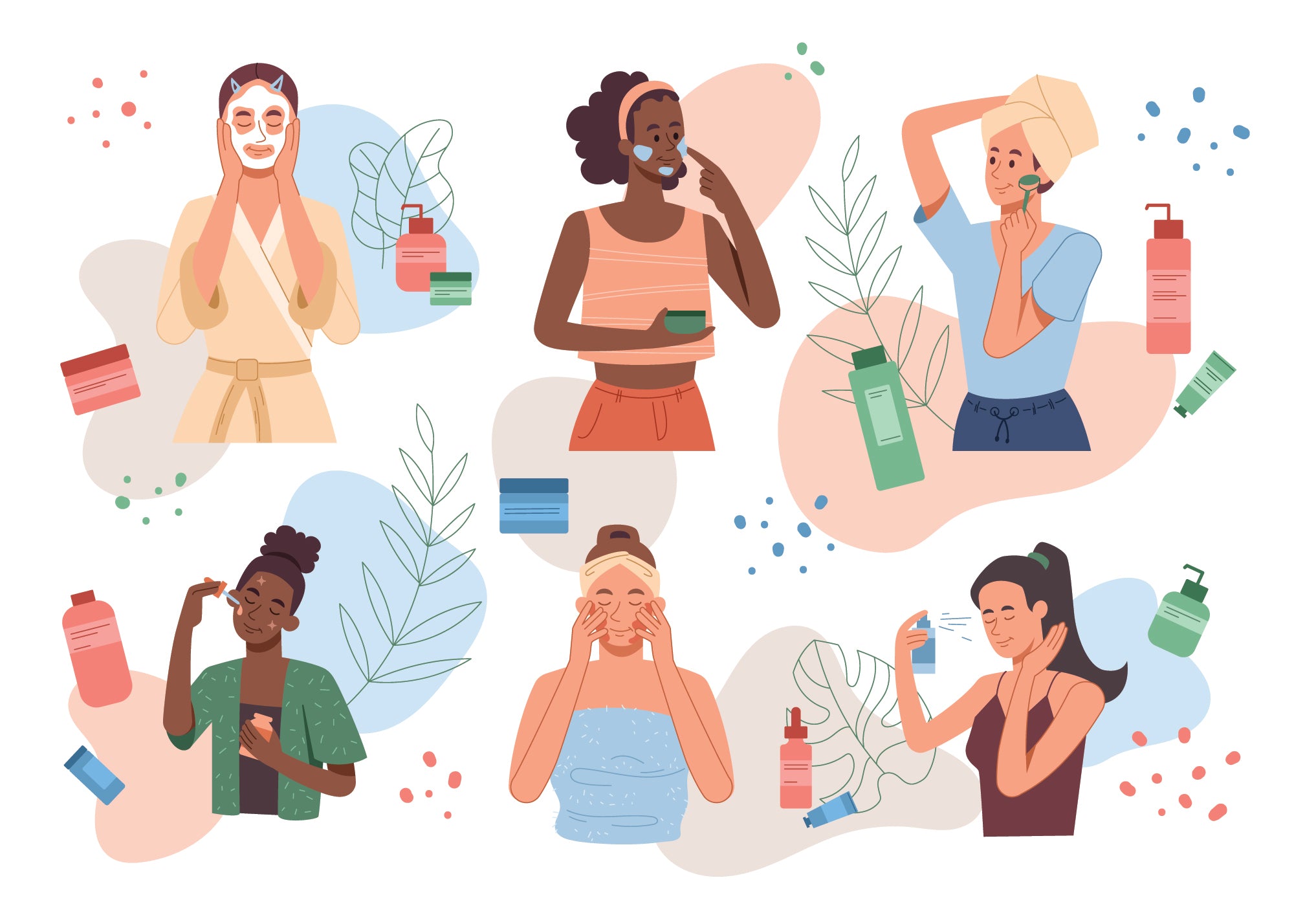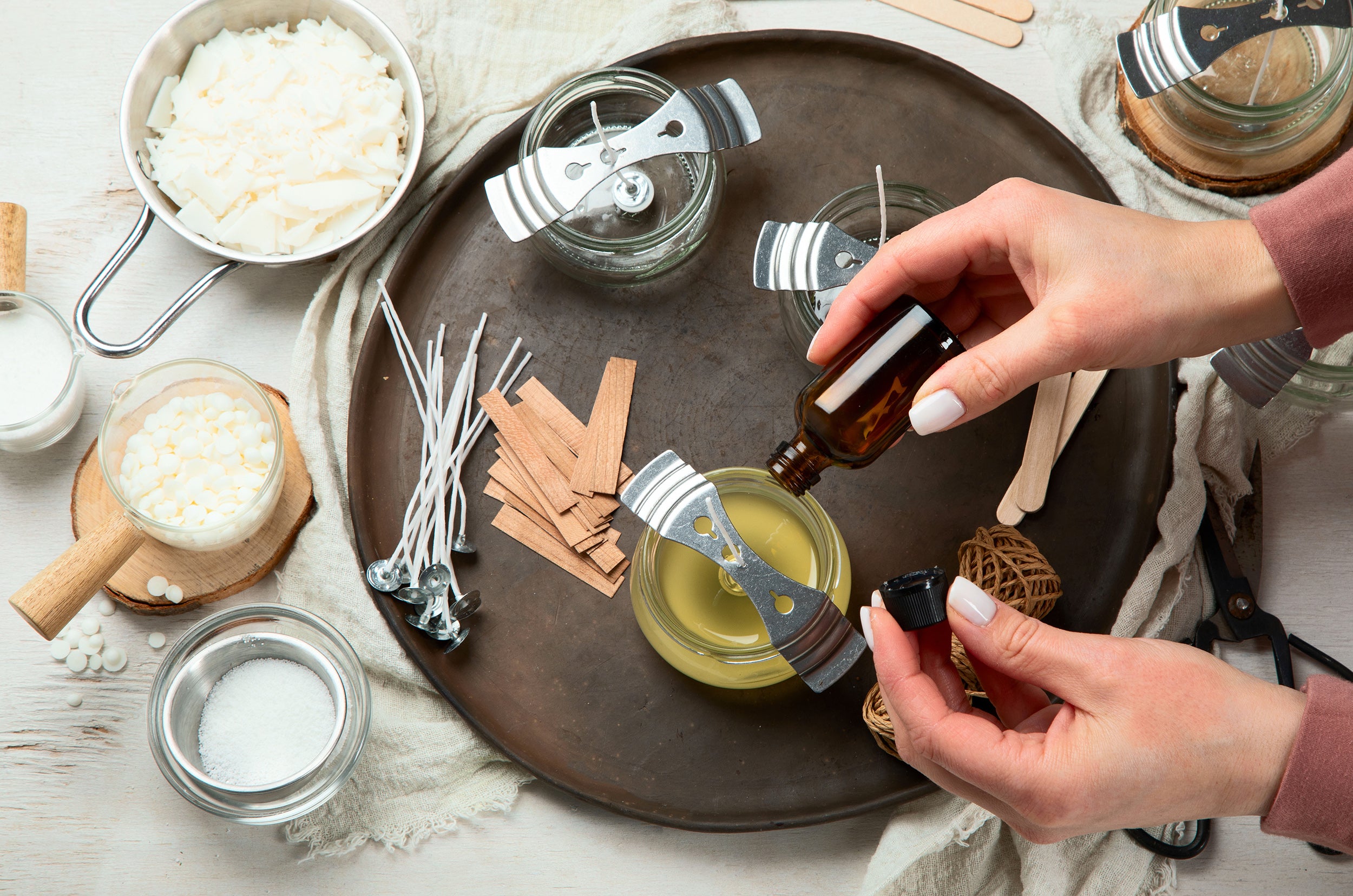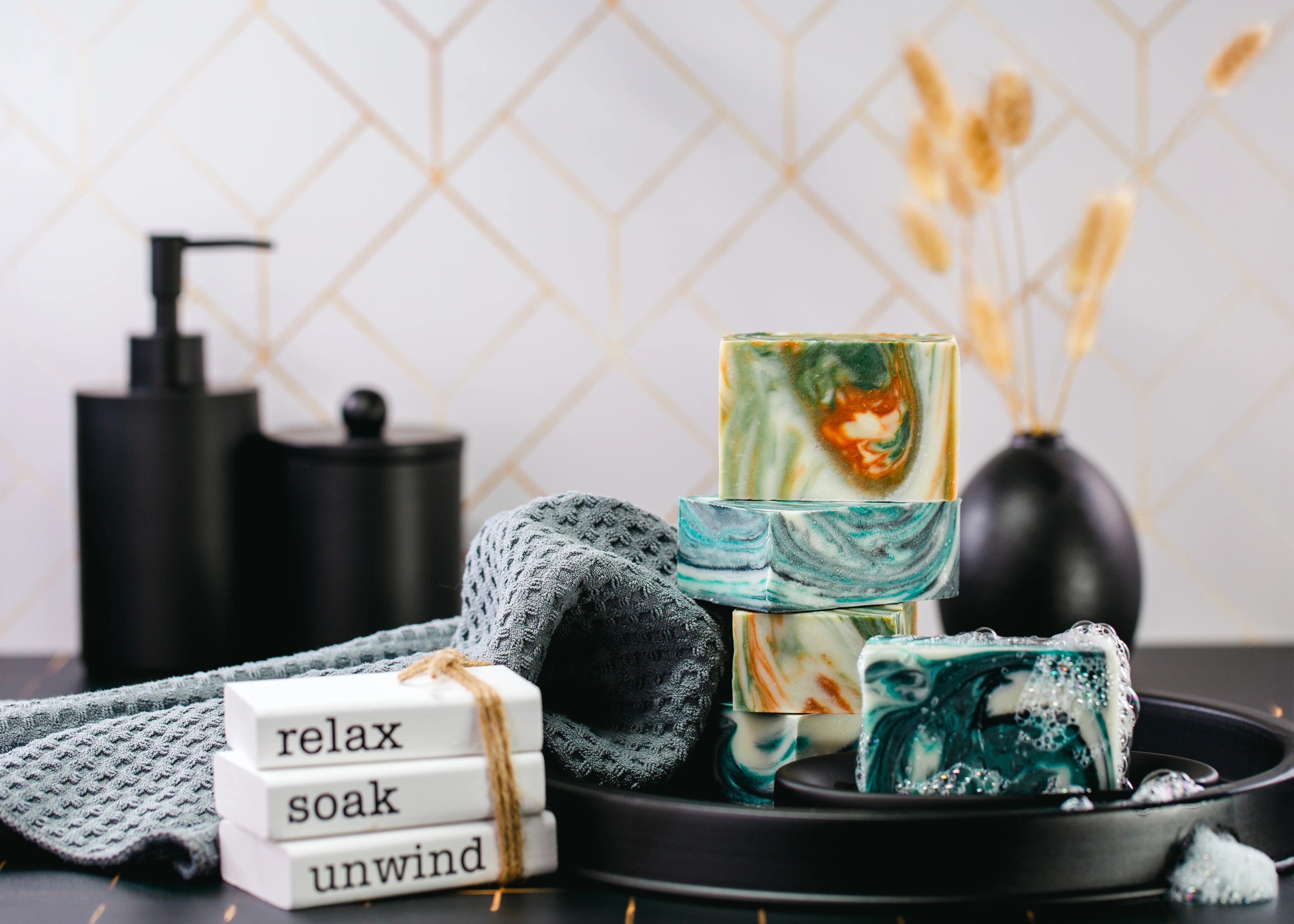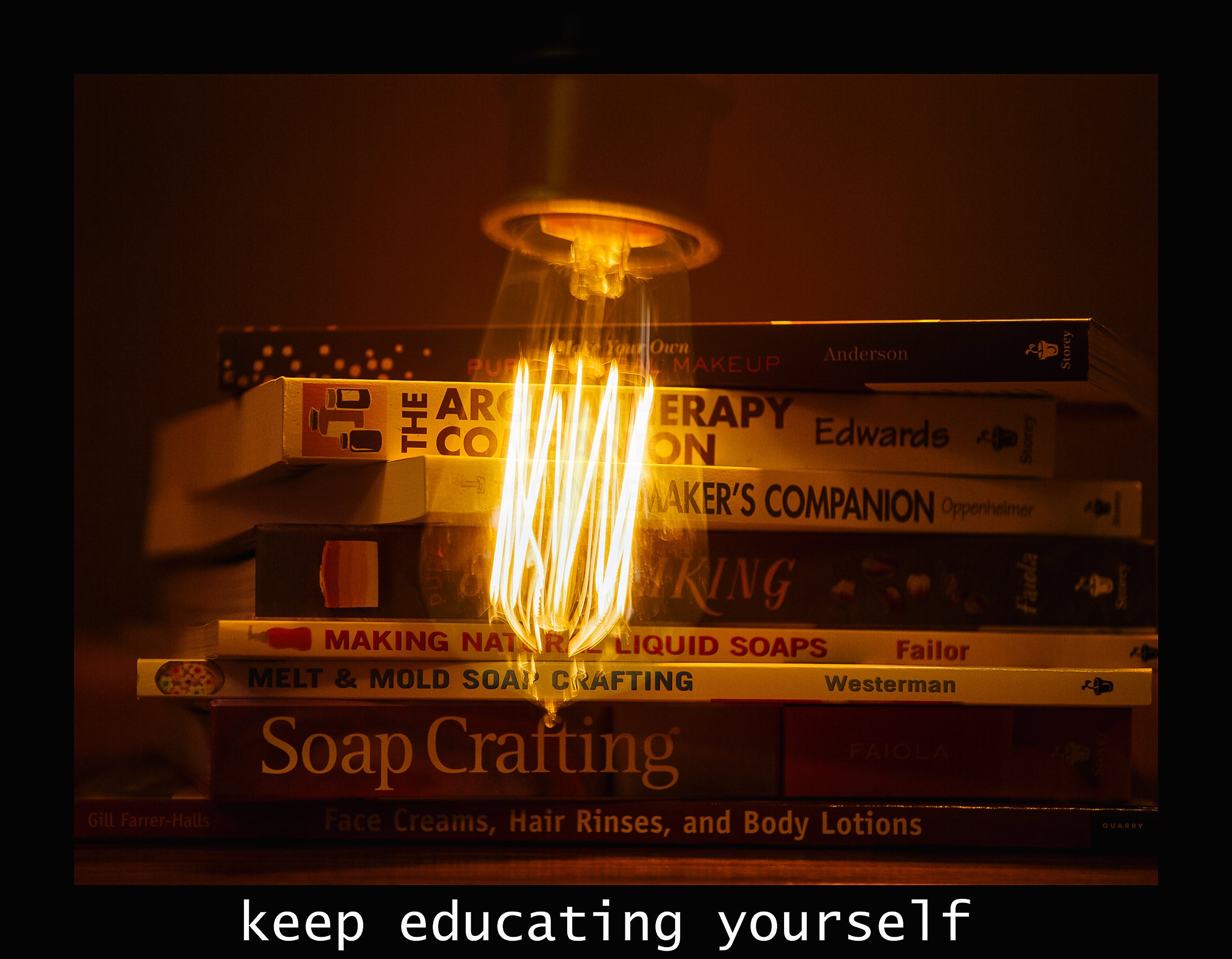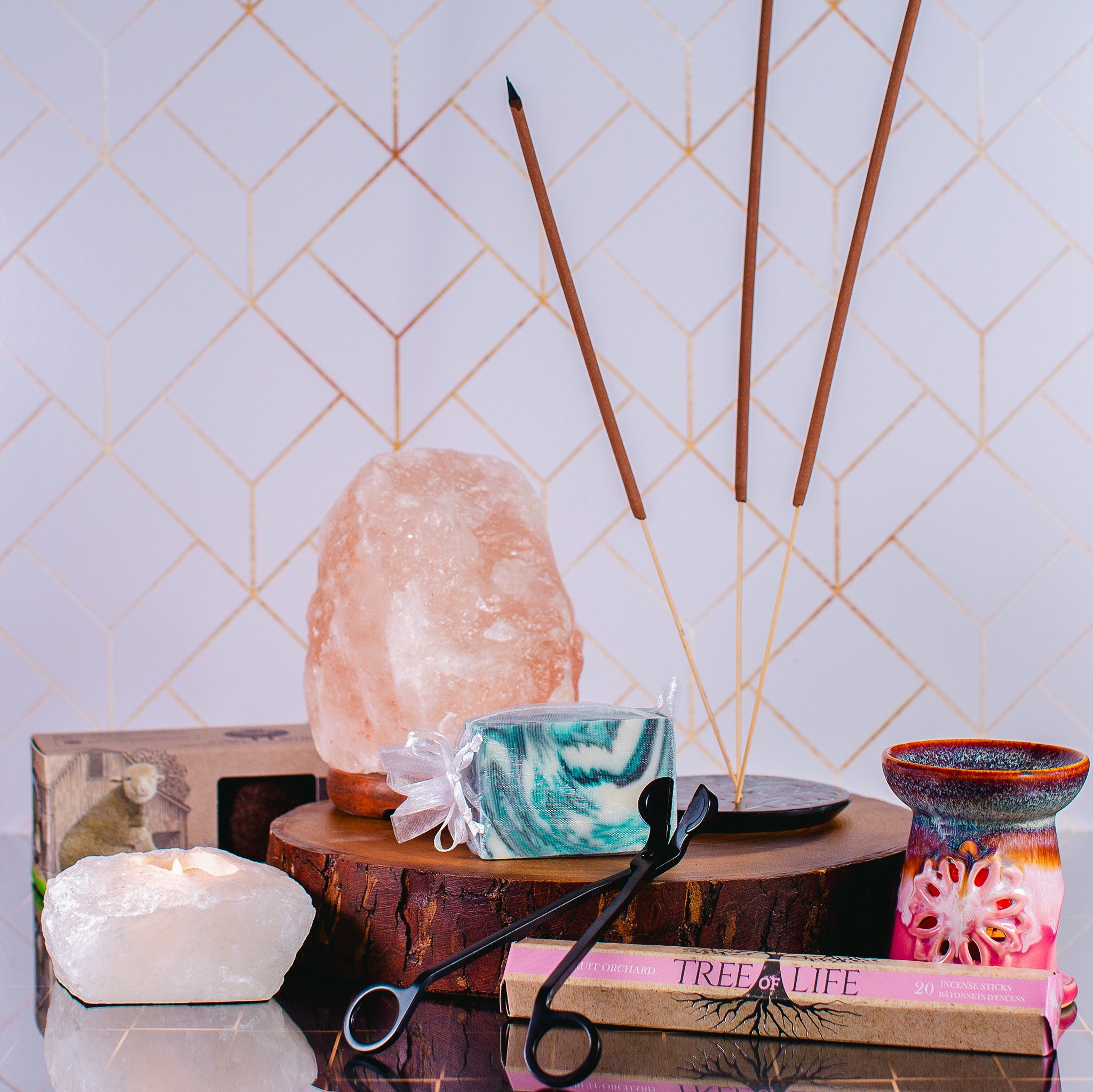Unleash your creativity and create bewitching Poison Dart Frog Soaps this Halloween, with our Love Spell Fragrance Oil as your secret potion for success.
Click Here To Follow Our Step-By-Step PDF Guide
Recommended Ingredients:
Recipe (makes 3) :
- 110g SFIC Olive Oil Melt and Pour Base
- 4g Love Spell
- 2g Isopropyl Alcohol in Spray bottle
- 2x drops Jewel Tone Liquid Concentrate - Blue
- 1x 0.15cc scoop of Onyx Mica
- 1x 0.15cc scoop of Poolside Blue Mica
- 1x 0.15cc scoop of Enchanted Castle Mica
- 1x 0.15cc scoop of White Mica - Pearly Finish
Recommended Utensils:
- 1x Frog Milky Way Soap Mold
- 1 x Easy Pour Measuring Cup
- 1x 0.15 cc Plastic Scoop
- 2x small mixing cups
- Stainless Steel Heavy Gauge Soap Cutter
- Paintbrush
- Scale
- Sticks to stir
- Gloves
Directions:
- Step 1: Using the paint brush and dry mica powder, dry paint the frog's body with the Poolside Blue Mica and the legs with the Enchanted Castle Mica. Now using a small mixing cup, mix Isopropyl Alcohol and the Onyx Mica . Then use the paintbrush to splash small black spots onto the frog's body and head. Don’t worry about the black eyes for now.
- Step 2: Weigh out and cut your Melt and Pour soap base and place in an easy pour cup.
- Step 3: In a microwave carefully heat up the easy pour cup. It's best to heat up Melt and Pour Soap in 10 second intervals to prevent overheating. Once melted, add the Love Spell Fragrance. Mix well.
- Step 4: Mix in 2 drops Jewel Tone Liquid Blue Concentrate and mix well.
- Step 5:Pour the Soap into the Frog Soap Mold and let the Soap set for a few hours.
- Step 6: Once fully hardened, unmold the Soap by turning the Soap mold around and pushing firmly against the Frog’s body. You will see how the suction breaks slowly as it releases.
- Step 7: Now that your Frog Soap is released, paint the eyes black using a mix of Onyx mica and Isopropyl Alcohol. Then add 2 small dots using a mix of White Mica and Isopropyl Alcohol. If desired use the mix of Onyx mica and Isopropyl Alcohol and a paintbrush to splash more black spots onto the Frog’s body.
- Step 8:Your Poison Frog soap is ready to use or package! Melt and Pour Soaps do not need to cure and can be used right away.
Common Issues:
Discoloration:
Fragrance Oils are most of the time the Culprit when a soap discolors. Some fragrance oils already have a dark color straight out of the bottle. Also you will want to check each fragrance for its Vanillin content. If the Fragrance contains Vanillin, your soap will over time turn to a tan color. Some Fragrances can even turn them to a very dark brown. Keep that in mind when wanting to make a bright or white colored soap.
Ripples:
Ripples can happen when the Soap is not fully hardened and the mold is being moved or a fan or air draft is blowing across the cooling soap.
Bubbles:
Bubbles happen when mixing fragrance and colorants into the soap, however they burst easily by being sprayed with Isopropyl Alcohol
Sweating:
If your Soap starts sweating after a few days of making it , it could be due to the humidity . It's best to package Melt and Pour Soap right away into shrink wrap or plastic wrap. Sweating does not mean that your soap is bad, it merely does not look appealing. However, sweating can also be caused by overheating the base. So be sure to not have it boil in your microwave . Even if the base starts steaming as you remove it from the microwave it's very likely burned.
If you have a lot of issues with your melt and pour sweating, try our SFIC Low Sweat White and SFIC Low Sweat Clear bases.
Botanicals:
While dried Botanicals look amazing in Soaps, they are not compatible with Melt and Pour Soap. Due to Melt and Pour Soap being Glycerin based it will rehydrate dried Botanicals and cause them to eventually mold . Lavender buds will turn the soap brown and moldy so its best to refrain from adding them into your soap. Besides, they will just fall off into your sink and clog up your drain.
Layers separating:
When adding a 2nd layer to a soap you may notice it separating from the first layer, if this happens you likely poured the 2nd layer too long after pouring the first. The bottom layer has to solidify but cannot be too cold. The top layer cannot be too hot nor too cold. You can also score the first layer and be sure to spritz some Isopropyl Alcohol as it helps the layers to adhere to each other.
Low lather:
Adding too much of an additive will reduce lather. This is often seen when adding powders or additional oils.
Powders such as clays or even activated charcoal in excess will increase the volume of the soap, with more of the powder there will be less soap hence your lather will be affected.
Adding oils will also cause this low lather affect. While adding oils will increase moisture it will decrease the ability to lather, as oil by itself does not lather.
To prevent a loss in lather use small amounts of additives to your soap, just enough to give the desired affect but not too much to disrupt the ratio of soap to additive.




